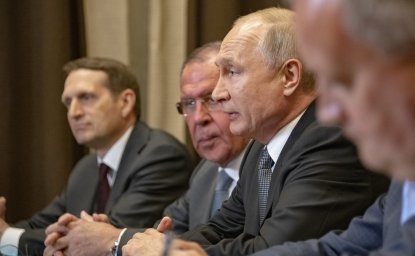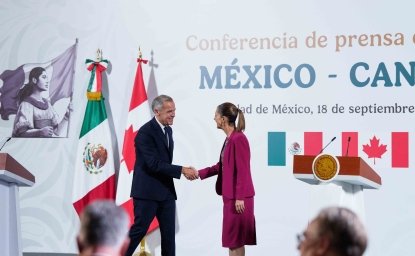
The world has transitioned to new energy sources before, from wood to coal to oil to natural gas. And each transition has reshaped the geopolitical map in countless ways, creating hard-to-imagine realities. British colonialists from the bygone Empire would be shocked to discover that not only is Newcastle receiving instead of exporting coal in the 21st century, but that the descendants of their former subjects on the Arabian Peninsula would use oil revenue to bid for the Newcastle football team.
The current transition to low-carbon energy sources—known broadly as decarbonization—will affect geopolitics and foreign policy at least as much as did its predecessors, and it will require a response from the foreign policy community. This essay examines those effects and the needed response.
First, we note how this transition is different from previous ones, in speed and scope. We then summarize the role of energy in various areas of current foreign policy: in modern geopolitics, fossil fuels are a strategic resource that affect money, power, and diplomatic relationships. Finally, we examine the impacts that decarbonization is having on these policy areas, using a diverse group of countries as illustrative cases and offer recommendations for how the foreign policy community can ensure a smooth transition to new energy sources.

A New Type of Transition
Our current transition differs from previous ones in two main ways. First, decarbonization must be an energy replacement, not merely an energy addition. In past global energy transitions, the new energy source has tended to surpass rather than replace the existing one: for instance, while oil displaced coal in the 1960s as the dominant resource in the global energy supply, the world consumes more than twice as much coal today as it did then. Decarbonization, on the other hand, requires reducing fossil fuel consumption to an absolute minimum in order for the world to hit stated climate targets. Indeed, the majority of known, valuable fossil fuel reserves must stay in the ground to avoid dangerous climate change.
Second, this climate protection-driven transition needs to occur significantly faster than previous transitions, which primarily occurred because the rising energy resource was cheaper or much more useful to its end-users. In previous transitions, as the energy historian Vaclav Smil has pointed out, it took over 50 years for a new energy resource to reach “a large penetration,” let alone market dominance. Today, low-carbon energy—including both renewable energy and nuclear energy— accounts for only 15 percent of the global energy mix.
By signing the Paris Agreement on climate change, the nations of the world have implicitly pledged to achieve this more comprehensive transition in record speed. According to the UN Intergovernmental Panel on Climate Change, in order to have a better than 66 percent chance of limiting warming to 1.5°C or less, the world must achieve net-zero greenhouse gas emissions by 2050, i.e. in 30 years. Even pathways based on slower emissions reductions entail net-zero emissions by around 2070 or 2080 to limit warming to 2°C, and thus rapid declines in oil and gas consumption by the middle of the century. In historical terms, stakeholders will not have long to adjust.
This is not to say that decarbonization on this ambitious timeframe is unachievable. Certain countries and sectors have transitioned more quickly, from Kuwait shifting its economy to run on oil in the late 1940s, to the French electricity sector going nuclear in the 1970s, to Brazilian automakers switching to flex-fuels cars (that can run on either gasoline or ethanol) in the 2000s. Moreover, the expansion of renewable energies has also already made significant progress in recent years in countries such as Costa Rica, Iceland, Denmark, and Uruguay. Policymakers hope to use the lessons of previous efforts to accelerate the spread of clean energy. They must also be aware of the political effects of such transitions.
Geopolitics of Fossil Fuels in the Modern World: What Role Does Energy Play Today?
Money: Energy is big business. It is not just a commodity but a basic resource required to exploit all other resources. Energy expenditures account for over 3 percent of global GDP, even without taking into account energy subsidies, energy transport costs, and energy efficiency measures. Fossil fuel imports alone make up over 10 percent of global merchandise import costs.
Accordingly, energy is a key revenue source for governments who tax energy transactions, sell drilling rights, or own shares in energy companies. Fossil fuels are in fact the most important source of revenue for the governments of Nigeria, Russia, Iran, Venezuela, and Saudi Arabia. They are also a vital source of income and jobs in certain regions and sectors, whether oil and gas extraction in the Canadian province of Alberta, freight transport in India, or coal mining in Southern Poland.
Power: National control over or access to fossil fuels has long been key to international power. The availability of domestic coal was essential to Britain’s industrial revolution and imperial strength, and great powers have gone to great lengths to secure energy resources ever since. The oil-exporting nations of OPEC discovered in the 1970s that their energy resources gave them the ability to put major pressure on larger, richer energy importers.
Although securing resources has seldom been the primary cause for a war, it has been a factor in many military conflicts and diplomatic spats, from the Nigerian Civil War of 1967-70, to the 1991 Gulf War, to the current tensions over drilling rights between Greece, Turkey, and Cyprus. Interestingly, research suggests that petrostates—those where oil exports constitute more than 10 percent of GDP—have been more likely to engage in military conflict than non-petrostates.
Governments can use fossil fuel revenues to develop and diversify their economies, expanding their influence on foreign affairs, and they can funnel them into social spending to improve lives and maintain stability. Yet the presence of substantial fossil fuel reserves can also lead to negative outcomes if the “resource curse” strikes. In fact, because trade in fossil fuels is so important to both importers and exporters, merely being located along key trade routes can give a country more geopolitical weight. A good example is Ukraine’s role as a transit country for sales of Russian gas to Europe.
Relationships: Fossil fuels can be a key determinant of diplomatic relationships. Saudi Arabia’s position as the top oil exporter on the planet, as well as its location near the world’s most important oil transit chokepoint, the Strait of Hormuz, is largely responsible for its close security relationship with the United States. Venezuela has sold refined oil products at a discount to Caribbean allies, while most Azerbaijani exports to the EU are fossil fuels, which informs that diplomatic relationship. This dimension of diplomacy has long been linked to the question of energy security, understood as assured access to reliable energy supplies. Exporters of fossil fuels have often been able to ensure a favourable negotiation position vis-à-vis importing countries, even compensating for deficits in other areas such as good governance and the rule of law.
Relatedly, the fact that fossil fuels are important in so many areas makes them a favored strategic resource of politicians seeking to achieve other ends. Countries can enforce embargos (as the UN did against apartheid South Africa in 1987), impose sanctions (the P5+1 against Iran in the late 2010s), or seek to prevent the construction of fossil fuel infrastructure, as the United States did with the Brotherhood pipeline built in the 1980s to connect Soviet gas fields with European consumers.
What Impacts Will Decarbonization Have in These Areas?
Decarbonization will change the landscape of money, power, relationships, and strategic resources in a way that offers new pathways to peace and stability. Yet it also requires managing energy transitions to avoid the sudden destabilization of existing relationships.
Some countries will likely enjoy geopolitical benefits. Those countries that currently import large quantities of fossil fuels will become less dependent on exporters, improve their balance of trade, and perhaps enjoy new economic opportunities if they can seize the initiative and dominate the technologies required for a decarbonized energy system. Firms from China to California are racing to file clean energy patents.
The flip side is that decarbonization represents a real challenge for oil- and gas-producing states. The International Energy Agency has argued that economies that produce oil and gas could lose US$7 trillion by 2040 in a low oil price environment. States that have failed to diversify their economies are particularly exposed and may slide into instability. Meanwhile, states that face high production costs in the oil sector or rely on high oil prices to balance their budget will suffer more immediate negative impacts—especially if the oil-richest nations decide to “panic and pump,” i.e., to sell their buried treasure while they still have customers. Fossil fuel exporters may also have to contend with trade restrictions imposed by customers should these customers move to tax imported products based on their embedded carbon emissions. The EU already plans to implement such a carbon tax at its borders.
Just as decarbonization transforms geopolitics, geopolitical considerations can in turn influence decarbonization—think of China’s Belt and Road Initiative, which is financing high-carbon infrastructure (coal-fired power plants, oil pipelines) in part for geopolitical reasons and in the process may lock in a high-carbon economy.
Decarbonized geopolitics will, however, resemble current geopolitics in certain ways. There will still be cross-border trade in electricity and hydrogen in a decarbonizing world, which means there will still be security and transit risks. There will still be energy technologies that require certain natural resources: the EU estimates that it will need up to 16 times more lithium and five times more cobalt—both are used for batteries—by 2030 to meet its climate neutrality goal.

Like fossil fuels, these resources are distributed unevenly, which raises concerns about access. China, for instance, has the largest deposits of rare earth metals (used for magnets for e.g., wind turbines) and, alongside Chile, it is the main producer of lithium. It already reduced exports of rare earth metals in 2010 amid rising tensions with Japan.
The leading producer of cobalt, meanwhile, is the unstable Democratic Republic of the Congo. A race to exploit clean energy resources in poorly governed countries could have negative environmental and human rights impacts if not guided by appropriate resource governance. Careful planning, e.g., supporting recycling systems and the efficient use of resources, can help avoid future scarcities, though technological breakthroughs may be also key to reducing future dependencies on all these materials. Finally, the decarbonized world map will still have some countries whose natural energy resources boost their geopolitical position: Algeria, Australia, and others could use solar and wind power to produce energy carriers such as hydrogen.
Fragile Decarbonization
What does this mean on the national level? It is useful to focus here on fossil-fuel exporting states, who potentially have a lot to lose from the energy transition. Here we break them down into three categories: the “Relatively Prepared,” the “Facing Risks and Opportunities,” and the “Fragile.”
-
Relatively prepared
Wealthier, politically stable exporters are relatively prepared to deal with the repercussions of a global decarbonization process. Canada, for example, is a stable, highly developed democracy with a diversified economy and a well-educated workforce, although the oil industry remains economically important. The country has already started to establish institutions, such as a Task Force on Just Transition for Canadian Coal Power Workers and Communities, that are responsible for providing knowledge, options, and recommendations to guide a just transition process in the country. Qatar, as another example, is a rich petrostate with stable governance structures and one of the highest per capita incomes in the world. It has used the wealth generated by its oil industry to develop its gas sector, as well as other areas of the economy and its external relations.
-
Facing Risks and Opportunities
A second set of countries faces both major risks and opportunities. In Colombia, revenues from coal and oil exports are economically significant, but the economy increasingly aims to diversify into low-emission areas—for example by expanding the creative industry and other service-oriented sectors. However, the country is still in the process of emerging from decades of internal conflict. Indonesia, as another example, is a rapidly developing economy that is experiencing huge growth in the demand for goods and energy. This growth is highly dependent on the exploitation of its abundant hydrocarbons, primarily coal and oil, as well as other carbon-intensive assets, such as palm oil. A global shift away from fossil fuels, like a ban on unsustainable palm oil, would have major repercussions for its economy

-
Fragile
Finally, some countries are highly vulnerable to deep decarbonisation processes—especially where their main trade partners are already working towards achieving climate-neutral economies. In Nigeria, the economy is highly dependent on gas and particularly oil. These two commodities account for almost all the country’s export revenues. The country also scores poorly on indexes assessing state fragility, human development, strength of governance, and preparedness for climate change impacts, weaknesses that the COVID-19 pandemic and ensuing recession have only made more acute in fragile countries around the world. Another example of a fragile country is Azerbaijan, which faces an ongoing conflict with Armenia over disputed territory and whose economy is highly dependent on oil and gas trade with the decarbonizing EU.
Foreign policy actors know how problems in a distant, fragile state can quickly land on their desks, whether the trigger is a coup, migration flows, or a virus. Unlike pandemics that strike suddenly, though, with decarbonization it is relatively easy to predict which exposed sectors in which fragile countries will fall into disarray. The sooner the international community acts to manage the fallout, the better.
How Can We Make the Transition Less Bumpy?
In order to manage the effects of this energy transition, which is already in progress, foreign policy actors must ensure that decarbonization goes hand in hand with the further development of robust bilateral relations. This approach requires a climate-informed foreign policy that acknowledges the shifting flows of money and of power, as well as the changing landscape of diplomatic relations and strategic resources. Different policy areas can contribute to a stable and peaceful transition process.
-
Climate and energy policies
Low-carbon development, including renewable and clean energy technologies, is a particularly promising field for developing future cooperation, transforming existing relations, and promoting enhanced action worldwide through the increased use of diplomatic resources. Many fossil fuel-exporting countries have great potential to enhance cooperation around expanding sustainable energy. Renewable energy enjoys increasing price advantages, is becoming an internationally recognized prime energy resource, and can be linked to established programs and strategies for economic diversification. Renewable energy also yields co-benefits, like good jobs, increased energy access via decentralized energy systems, and improved livelihood security and living standards in rural areas. These advantages are especially clear in developing countries like Nigeria, where only around 60 percent of the population are connected to the electricity grid, and 80 percent of those with grid access rely on generators running on expensive imported diesel fuel to cope with frequent outages.
-
Trade and investment
Foreign policymakers need to consider a wider variety of potential entry points to move countries beyond fossil fuels and other carbon-intensive products. Trade, investment, and more generally, economic cooperation with countries facing risks from global decarbonization, such as Nigeria or Colombia, can play an important role. As seen in the EU, partnership and cooperation agreements or free-trade agreements can provide a strong basis for such economic cooperation. A starting point could be cooperation between countries that have strategies or plans for economic diversification; these could build more strongly on and connect to priority sectors and industries independent of the fossil fuel business. Such activities should also help enhance these countries’ resilience against stability risks arising from their dependence on oil and gas in a world that is beginning to move beyond fossil fuels.
-
Science and education
Poorer fossil fuel exporters in particular face significant challenges in developing a knowledge-based economy, which is itself closely linked to aspirations of economic diversification. Countries with established educational and research programs should recognize that these capacities are a strategic resource with which to encourage and shape diplomatic relations and international cooperation. By cooperating with fossil-fuel exporters, they can help to enhance their education and skills development as well as their research capacities. Such cooperation on education, research, and training can be intensified both bilaterally and in interregional frameworks. Renewable energy and other aspects of a low-carbon economy have particular potential in this respect (e.g., university partnerships or joint university degrees).
-
Finance and development
Diplomatic relations can put a focus on realigning finance and development cooperation to support decarbonization. Ongoing debates in Europe and beyond center on designing external finance and development cooperation so that a significant share of overall finance is reserved for climate and low-carbon development purposes. In addition, governments need to work to phase out or prohibit finance that is not aligned with low-carbon development objectives. China’s Belt and Road program fails to do this. On the other hand, Japan has announced it will slash its support for coal power in Asia, the UK government’s overseas development bank is cutting support for fossil fuel projects, and the European Investment Bank pledges more than 25 percent of its financing to climate action. An important element of such reformed policies on external finance and cooperation is financial support for a just transition. Incorporating strategies for a just transition would heed the lessons from internal debates, like those in Europe or Canada, on the importance of supporting regions particularly reliant on high-carbon industries and activities.
-
Security and peace
The geopolitics of decarbonization are also closely related to issues of peace and security. Many fossil fuel exporters face serious internal and/or external security challenges. This dynamic is as true for relatively prepared countries as it is for fragile ones. For example, Nigeria faces both serious internal and regional security threats, whereas the main security challenges are primarily domestic for Colombia and Indonesia. Qatar and Azerbaijan in particular are embedded in precarious regional security contexts. In addition, these countries are—to varying extents—challenged by weaknesses of their governance systems. Partners such as the EU can build on and intensify cooperation with fossil-fuel exporters on these security matters.
Conclusion
This vital energy transition is not just a matter of concern for climate and energy policymakers. Nor should the foreign policy community expect the decline of fossil fuels to cause energy issues to recede into the background. On the contrary, it will create new geopolitical dynamics around low-carbon energy. In order for the transition to go relatively smoothly, it is essential that policymakers consider decarbonization in every aspect of their work, whether trade relations or education policy or development aid. Decarbonization will redraw the geopolitical landscape; diplomacy must be leveraged to ensure a smooth transition.
Authors
Explore More
Browse Insights & Analysis
Putin’s Endless War




